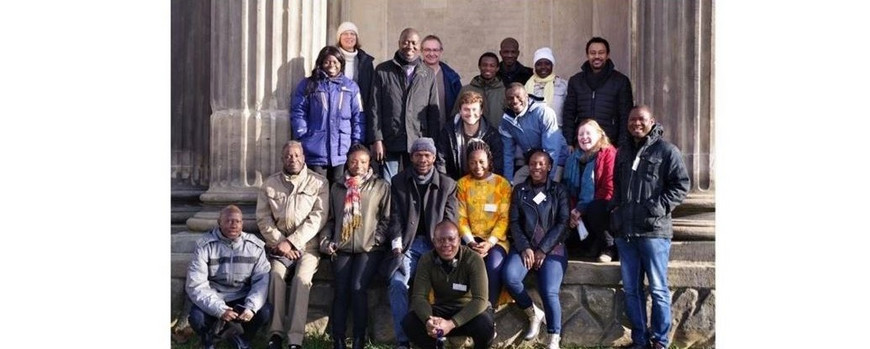GreenGaDe Project Workshop

All project members of the GreenGaDe consortium will meet again for the annual project workshop – this time in Potsdam, Germany, from 16.01. – 20.01.2023. Last time, we met all together in November 2021 for the Kick-Off Workshop in Ouagadougou, Burkina Faso.
At this year’s intermediate workshop, we will straighten our common activities and report on the successful field campaigns of 2022. Our PhD students will present their first results and receive training in scientific writing and statistics. Beyond that, the GreenGaDe consortium invited several researchers within the project’s scope to discuss common and different approaches to similar objectives and maybe even develop collaborative ideas.
Three highlights of the upcoming workshop:
1. Poster presentation: We chose to use poster presentations as a format for the PhD students to present their work. The students will be taught beforehand how to create a poster and based on this present their own A0 poster at the workshop. Communicating their own findings in a limited space and time forces researchers to think through their ideas and formulate them in a way that is easily understandable.
2. Invited participants: For Wednesday - as a major highlight to all of us – we have invited experts on our project’s research fields. Prof. Jörg Matschullat (University of Freiberg) and Dr. Souleymane Sy (University of Augsburg) will speak about their approaches to measuring greenhouse gases (GHG) in terrestrial ecosystems. With Jörg, we hope to strengthen our collaboration and to receive some advice about the usage of the mobile chambers systems - a measuring technique, which we have adopted from his working group. In contrast, the CONCERT project (another WRAP 2.0 project of WASCAL) represented by Souleymane will give us some insights into a very different approach as they are measuring GHG emissions with eddy covariance towers, however at very similar sites in West Africa.
Carla Cronauer and Stefanie Wesch from the Potsdam Institute for Climate Impact Research (PIK) will talk about the climate risk analysis they are using in the AGRICA project to identify and evaluate adaptation strategies in Burkina Faso. Our socio-economic team members is eager to learn more from their experience with stakeholder interviews and on how to evaluate their perspectives.
3. Interdisciplinary teamwork: One ultimate goal of our project is to work across disciplines and combine our findings into a more holistic picture. As a major step and within different constellations, we are looking forward to work on common data and exchange ideas for upcoming publications.
We are all very excited to see each other again in person!
